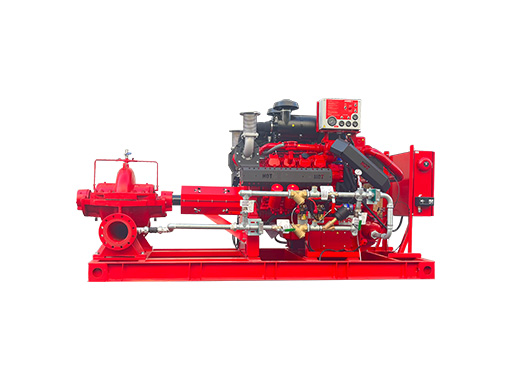
Fire pumps are a critical component of fire protection systems, and their certification plays a vital role in ensuring reliability and compliance with safety standards. For property owners, contractors, and facility managers, understanding fire pump certification is essential for selecting the right equipment and meeting regulatory requirements. Here’s everything you need to know about fire pump certification.
1. What is Fire Pump Certification?
Fire pump certification is the process by which third-party organizations evaluate and approve fire pumps based on established safety, performance, and reliability standards. Certified fire pumps are rigorously tested to ensure they can deliver consistent water pressure and flow during fire emergencies.
2. Why is Fire Pump Certification Important?
- Safety Assurance: Certified fire pumps are tested to perform reliably under emergency conditions.
- Compliance with Standards: Certifications ensure that fire pumps meet local and international fire safety codes, such as NFPA 20 (National Fire Protection Association) standards.
- Insurance Requirements: Many insurers require certified fire protection systems for coverage.
- Enhanced Confidence: Certified equipment provides peace of mind for property owners and building occupants.
3. Key Certification Bodies
Two of the most widely recognized certification organizations in the fire protection industry are UL (Underwriters Laboratories) and FM (Factory Mutual).
UL Certification
- Focuses on ensuring the safety and performance of fire pumps under standard operating conditions.
- Recognized globally and widely accepted in fire safety regulations.
FM Certification
- Emphasizes risk reduction and loss prevention.
- FM-certified fire pumps undergo more extensive testing under harsh, real-world conditions.
4. Certification Requirements for Fire Pumps
Fire pumps must meet stringent requirements to obtain certification, including:
- Performance Testing: Pumps are tested for flow, pressure, and durability.
- Material Standards: Materials must be resistant to corrosion, wear, and fire damage.
- Design Compliance: Pumps must adhere to guidelines for safety, installation, and operation.
- Operational Reliability: Pumps are evaluated for consistent performance under varying conditions.
5. Differences Between Certified and Non-Certified Fire Pumps
| Aspect |
Certified Fire Pumps |
Non-Certified Fire Pumps |
| Performance Guarantee |
Tested for reliability and safety |
Performance may vary. |
| Regulatory Compliance |
Meets local and international standards |
May not comply with regulations. |
| Insurance Acceptance |
Generally required for coverage |
May not be accepted by insurers. |
| Cost Efficiency |
Higher initial cost but lower risk |
Lower initial cost, higher long-term risk. |
6. How to Verify Fire Pump Certification
When selecting a fire pump, always check for:
- Certification Markings: Look for UL or FM labels on the product.
- Documentation: Request certificates or test reports from the manufacturer.
- Manufacturer Reputation: Work with trusted suppliers known for certified products.
7. Benefits of Using Certified Fire Pumps
- Improved Reliability: Certified pumps are less likely to fail during emergencies.
- Reduced Liability: Compliance with regulations helps avoid legal penalties.
- Increased Lifespan: High-quality materials and rigorous testing ensure durability.
Conclusion
Fire pump certification is essential for ensuring the safety and reliability of your fire protection system. Whether you’re planning a new installation or upgrading an existing system, always choose certified fire pumps to protect your property and occupants.
Contact us today to ensure your fire protection system is up to the highest standards.
